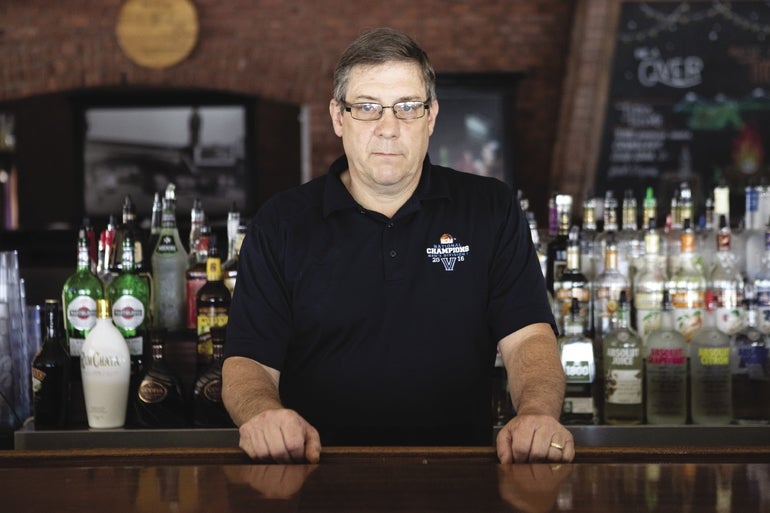The DCU Center, the Hanover Theatre, Worcester Fitness, and the Compass Tavern and nightclub in Worcester all have one commonality: adapting to difficult restrictions during the coronavirus pandemic.
Get Instant Access to This Article
Subscribe to Worcester Business Journal and get immediate access to all of our subscriber-only content and much more.
- Critical Central Massachusetts business news updated daily.
- Immediate access to all subscriber-only content on our website.
- Bi-weekly print or digital editions of our award-winning publication.
- Special bonus issues like the WBJ Book of Lists.
- Exclusive ticket prize draws for our in-person events.
Click here to purchase a paywall bypass link for this article.
The DCU Center, the Hanover Theatre, Worcester Fitness, and the Compass Tavern and nightclub in Worcester all have one commonality: adapting to difficult restrictions during the coronavirus pandemic.
If there's anything businesses have learned during 2020, surviving with uncertainty would be at the top of the list. As Gov. Charlie Baker continues to announce the phased reopening of the economy shut down in March, places such as fitness centers, entertainment venues, nightclubs, and theaters continue to remain either closed, or working within restrictions, awaiting Phases Three and Four to reopen.
Coming from many different backgrounds, holding different purposes, different Worcester establishments survive and adapt during unprecedented circumstances.
Responding to change
Sandy Dunn, general manager of the DCU Center, said the future plans of the center involve working at a smaller capacity compared to the large events it held before the pandemic.
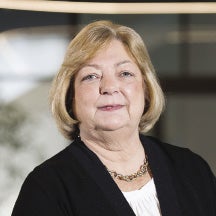
“Certain aspects of our business may make sense in Phase Three with appropriate systems in place for both our employees and our attendees,” Dunn said. “It is understandable that a sold out concert in the arena for 14,000 people will be the last type of business that will open, but we also do meetings for 25+ people and everything in between.”
The DCU Center shifted to a field hospital for coronavirus patients earlier this spring when cases of the disease became prevalent in Massachusetts.
The Compass Tavern, which is a restaurant and nightclub in the Canal District, has had to completely refocus the restaurant and the product mix it sold, said Owner David Domenick.
“The product mix has changed because I was basically before 80% liquor and 20% food,” Domenick said. “Now because of the six-foot separation, we have to concoct better drinks that are a little more expensive, but more boutique types of drinks. We have to concentrate on the food, because food is the first phase of this type of business that we are allowed to do.”
Restaurants were able to do takeout during Phase One, and dine-in service was recently allowed during Phase Two.
Domenick has had to adapt to the inability to open the nightclub part of his establishment due to it being restricted to opening until Phase Four. This restriction has resulted in Domenick zoning in on his restaurant.
“So my goal is to be a better restaurant, to offer entertainment when we are allowed too, but that entertainment being social distancing,” Domenick said. “So that probably does not include dancing but what does include what I like to call dinner and a show.
“Sit down at your table, have dinner, have a one-man acoustical guy playing, have a DJ playing, doing all requests but no dancing, karaoke, trivias, all of the things that people can do while sitting at their table and maintaining social distancing, and still have fun,” he said.
“The other goal is safety,” Domenick said. “I would rather close down if I thought for one minute I’d put a customer or staff member in danger.”
Kat Butterfield, director of operations at Worcester Fitness, said adaptability has been key for the gym to follow restrictions.
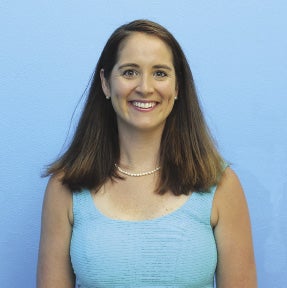
“We are doing outdoor group exercise classes, we offer Zoom classes for our members,” Butterfield said. “We started doing massage therapy following all of the guidelines for that as well personal training. So we are leaving it up to the client if they want to train inside or outside within what our limitations are with the state.”
Until July 6, gyms were unable to reopen completely, but Phase Two allowed for personal training.
Sanitizing for their reopening
Ahead of reopening, Worcester Fitness has organized its machines and gym layout to keep individuals safe while following social distancing guidelines.
“It definitely caused us to get really creative, which is a good thing” Butterfield said. “It helps us to kind of problem solve and figure out how to meet the needs of our state and our members, so that not only are the members and clients safe but also the staff is safe as well.”
In general, during the age of face masks, social distancing, and the coronavirus, finding ways to keep guests safe is a priority amongst establishments where social distancing is more difficult than others.
Troy Siebels, president and CEO of the Hanover Theatre, sees many opportunities for precautions whenever the theater reopens. These guidelines could include shorter performances, resulting in less congestion during intermissions; scattered seating; sanitation stations; and different arrival times for guests.
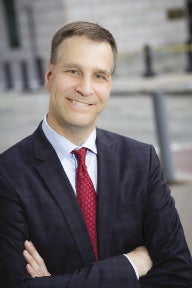
“We would certainly implement things like touchless ticket scanning, individually wrapped foods and beverages, if we are able to do concessions at all,” Siebels said. “Perhaps staggered entry times suggest that people in these rows, arrive between 30 and 40 minutes prior, and these rows will have to arrive between 15 and 30 minutes prior, leaving through multiple entrances.”
At larger venues, such as the DCU Center, plans are in place to protect guests at the venue. The center plans on using ASM Global Venue Shield, which works to help with the reopening process.
“This program has been developed with the network of over 350 venues worldwide, along with several industry partners and in accordance with top health and safety officials,” Dunn said. “It encompasses six areas of focus including workforce safety, environmental hygiene, technology & equipment, food service, the customer journey, and public awareness.”
Furloughs and lack of employees
In many establishments, furloughs were a large part of the hardships caused by the impact of the coronavirus.
“Our [primary] goal is to be able to come back strong and to prioritize our employees,” Siebels said. “We are doing everything that we can do to make sure we are here to come back strong when this thing is over, so that means some really painful things right now like furloughing a lot of people.”
Domenick sees future problems with employees taking unemployment versus working.
“The other hard part is a lot of the labor is making more money collecting unemployment then they are going back to work,” Domenick said. “So my peers are having a hard time getting their staff to come back because they’re making more, not working.”
Dunn looks forward to the return of the DCU Center staff, the majority of which was furloughed, who will be trained and ready to operate events in the future.
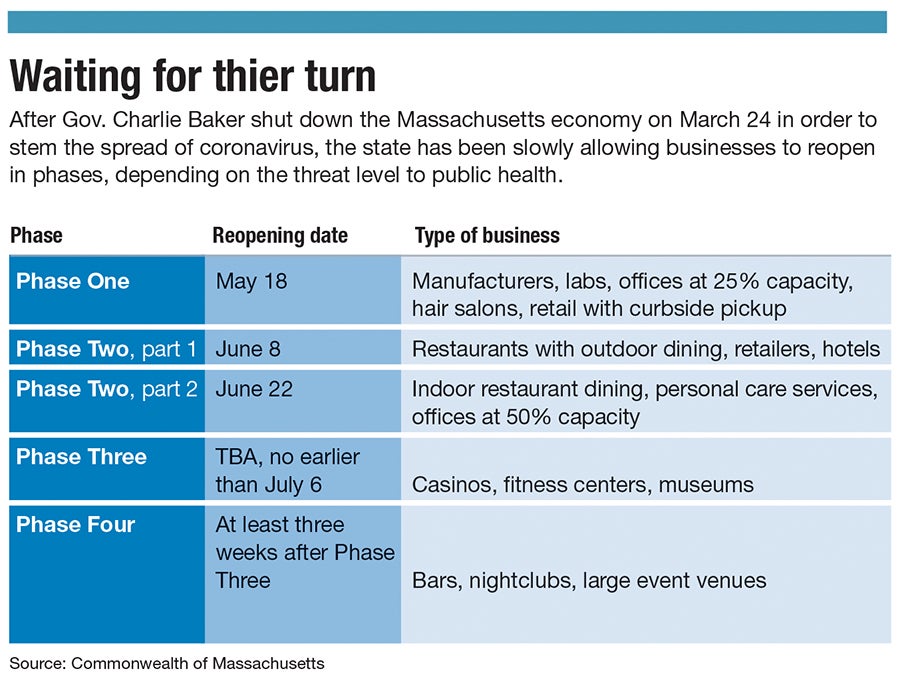
“We have the plan, there will be a ramp-up period as our staff returns to the workforce for training, implementation of signage, purchase of products and other protective equipment prior to a first event occurring,” she said. “When the time is right, the facility is in a good position to assist with gatherings that require social distancing.”
Goals within uncertainty
With the future unknown and the coronavirus still prevalent, Dunn looks for economic improvement to occur when the DCU Center reopens, as well as the trust of guests at the venue.
“The venue’s most important function is to provide a positive economic impact to the city,” Dunn said. “The hotels, restaurants, parking facilities and retail stores need our foot traffic to get back to a reasonable amount of business. The sooner we can do that, the better for our entire downtown neighborhood and the city.
“It is critically important that the fans re-enter these gathering spaces and live activities with confidence that the event organizer and venue are doing everything they can to enable the fan to have an enjoyable experience which includes a safe environment for everyone,” she said.
Siebels hopes to see normalcy arise from the current status of the world, and looks to history, citing the roaring 1920s following the 1918 influenza pandemic, for a sign of hope for theater and the world.
“There is a future ahead of us, we just have to keep focused on it,” he said.
